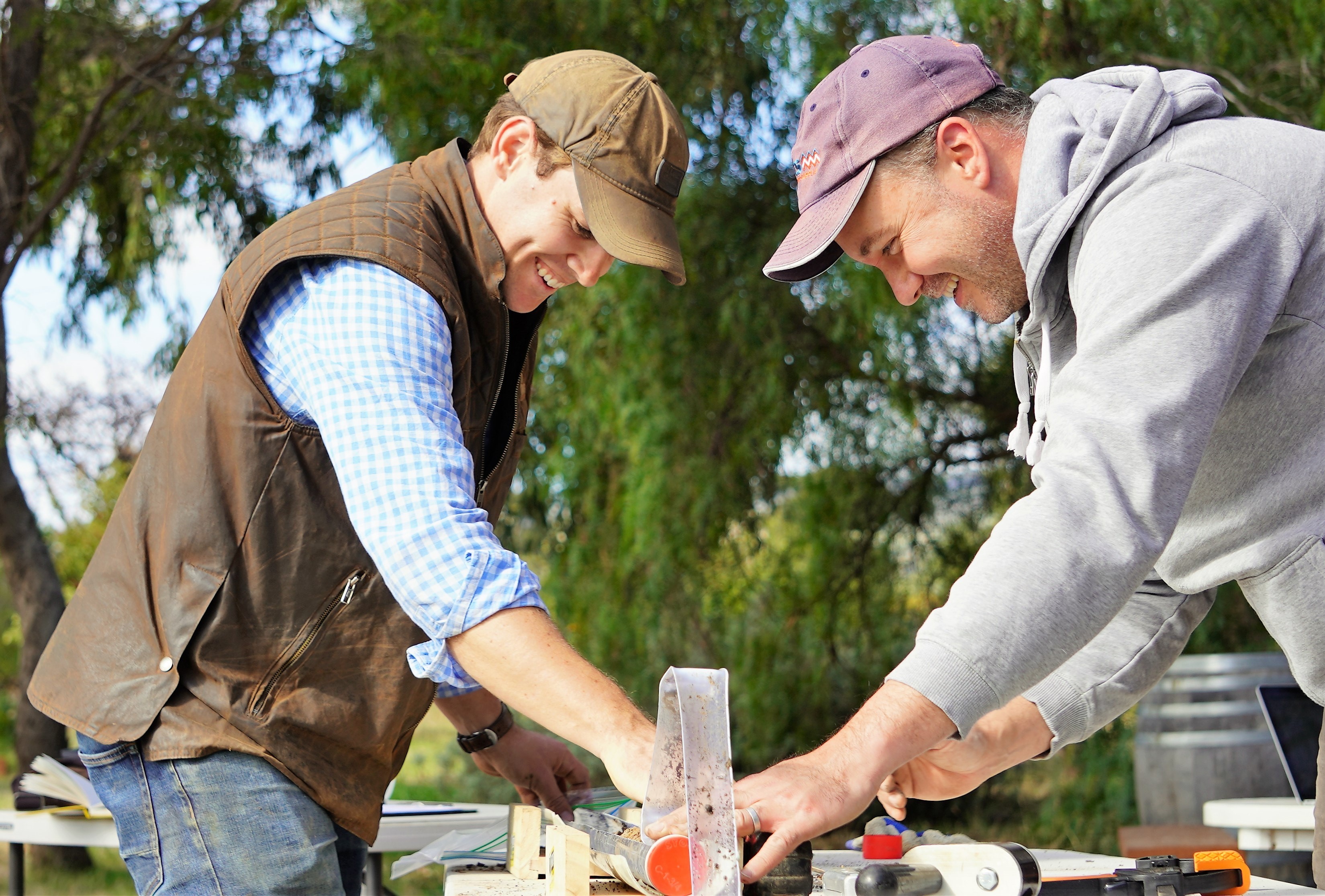A soil carbon project works by removing carbon from the atmosphere and storing it in the soil. Ultimately the process improves the soil by increasing the amount of decomposing plant material and microbes.
Oli Madgett and his friend, soil scientist Edward Scott, identified an opportunity for vineyards to become involved in the Australian Carbon Credit Unit (ACCU) Scheme.
In 2019, South Australian vineyard owner Oli Madgett discovered he could incorporate soil carbon farming on his land, that it would help the environment and increase the quality and productivity of his vineyard's soil.
'Soil carbon farming was a logical starting point for us with our vineyard but when we got into the details of working out how to randomly allocate soil samples, the methodologies were initially led by the livestock and cropping industries,' Oli said.
'Livestock and other crops have open paddocks, so there's nothing physically restricting where you can sample and generally, the same activity happens across that entire landscape. But vineyards and orchards are permanent alley crops which require different management practices.'
This led Oli to work with the Australian Government to establish a new land use-appropriate soil testing process.

Edward Scott (left) and Oli Madgett (right) preparing a soil carbon sample. Picture: Nicole Motteux.
'The sampling protocol in place at the time, and the way you stratify a carbon estimation area, was about 95% fit for vineyards. It just needed a couple of small changes to make it a perfect fit for vineyards and orchards,' Oli said.
The changes made to the sampling protocol to make it fit for his purpose were developed with technical experts and reviewed by the Emissions Reduction Assurance Committee to ensure they have integrity and meet the legislated integrity standards.
'Soil carbon sustainability is going to be a big part of our futures as grape growers,' he said.
'Building up soil organic carbon can improve our vineyards' soil quality in many ways; improving soil structure, storing water and nutrients, and feeding vital soil organisms – all contributing towards a long-term strategy aimed at improving the resilience of vines in the face of increasing climate extremes.
Oli is encouraging other grape growers to consider soil carbon farming with eligible projects to receive ACCUs. Several soil carbon projects are now in the process of being established in apple orchards and vineyards in South Australia.
'We've had interest from the almond industry and the big corporates in the wine industry.
'There's a lot of interest around regenerative agriculture and carbon credits. In many respects, Australia is one of the global leaders around soil carbon.
'We can baseline initial soil organic carbon levels, implement new activities and, subsequently, go back in future years to remeasure and claim carbon credits for the gains that we can prove that have been made.'
Note
ACCU Scheme method development is currently in the process of moving from a government-led to a proponent-led approach through the Department of Climate Change, Energy, the Environment and Water. The new process will provide extra flexibility to develop new approaches to abatement. This will promote innovation and increase the speed of method development.